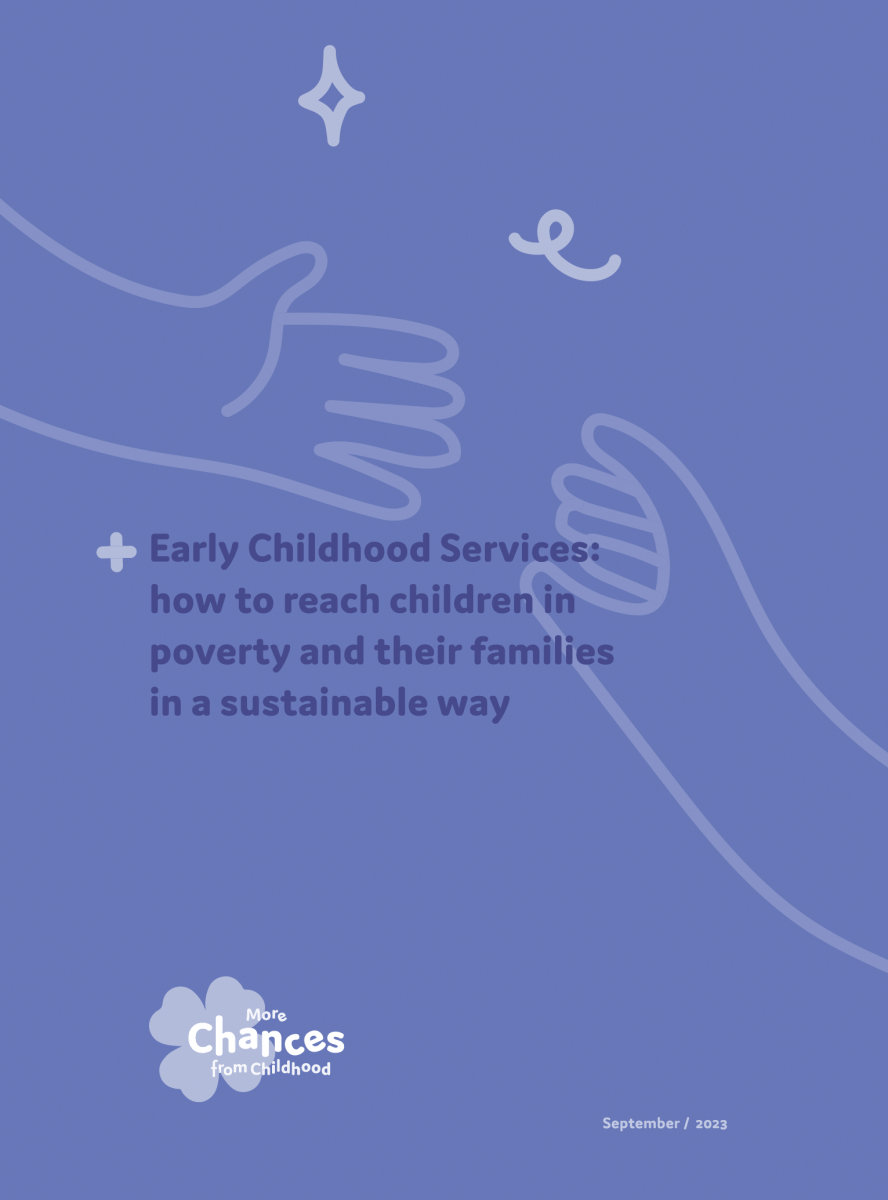Early Childhood Services: how to reach children in poverty and their families in a sustainable way
EU review of policies and practices supporting effective interventions for outreach and sustained involvement of the most marginalized children and families in ECEC services

What is it about?
The first 1,000 days of life are a key stage in life. They are a phase during which the
foundations are laid for adulthood: the acquisition of language, self-confidence,
relationships with others, physical and psychological stability and well-being. A child
who grows up in an underprivileged socio-economic environment does not have
the same chances as others. Suffering from nutritional or emotional deficiencies
in the very first months, or even the first years, of life means that a child risks
suffering long-term effects to his or her physical, intellectual, emotional and social
development.
Any undertakings aimed at correcting such disparities during early childhood, even
before starting school, are thus of great importance. Such action can help prevent
intergenerational poverty. The earlier any intervention is made, the greater the
preventative effect. Enabling children from as young an age as possible and their
families to have access to and regularly attend a quality care environment and a
parenting support service that meets their needs is a vital lever to getting a good
start to life. Unfortunately, the most vulnerable families do not make use, or make
relatively little use, of such services and this for a whole series of reasons. Finding
these families and creating a long-term relationship of confidence together with
them poses a real challenge.
There are services that have succeeded in meeting this challenge. The King Baudouin
Foundation, in partnership with the Compagnia di San Paolo and the Aga Khan
Foundation, commissioned the International Step by Step Association to conduct a
review and analysis of the policies and practices that enable effective intervention
to reach the most marginalized families and children and to sustainably involve
them in relevant care and support services.
There was a triple objective for this work:
- to examine the effectiveness of interventions aimed at reaching marginalised families and young children and to engage their long-term participation in care and support services;
- to identify the main factors in the implementation of effective measures and interventions;
- to further inspire professionals working in the sector and policy makers.
This work is intended to provide a basis for more in-depth dialogues with vulnerable,
invisible, unrepresented and un-listened to families